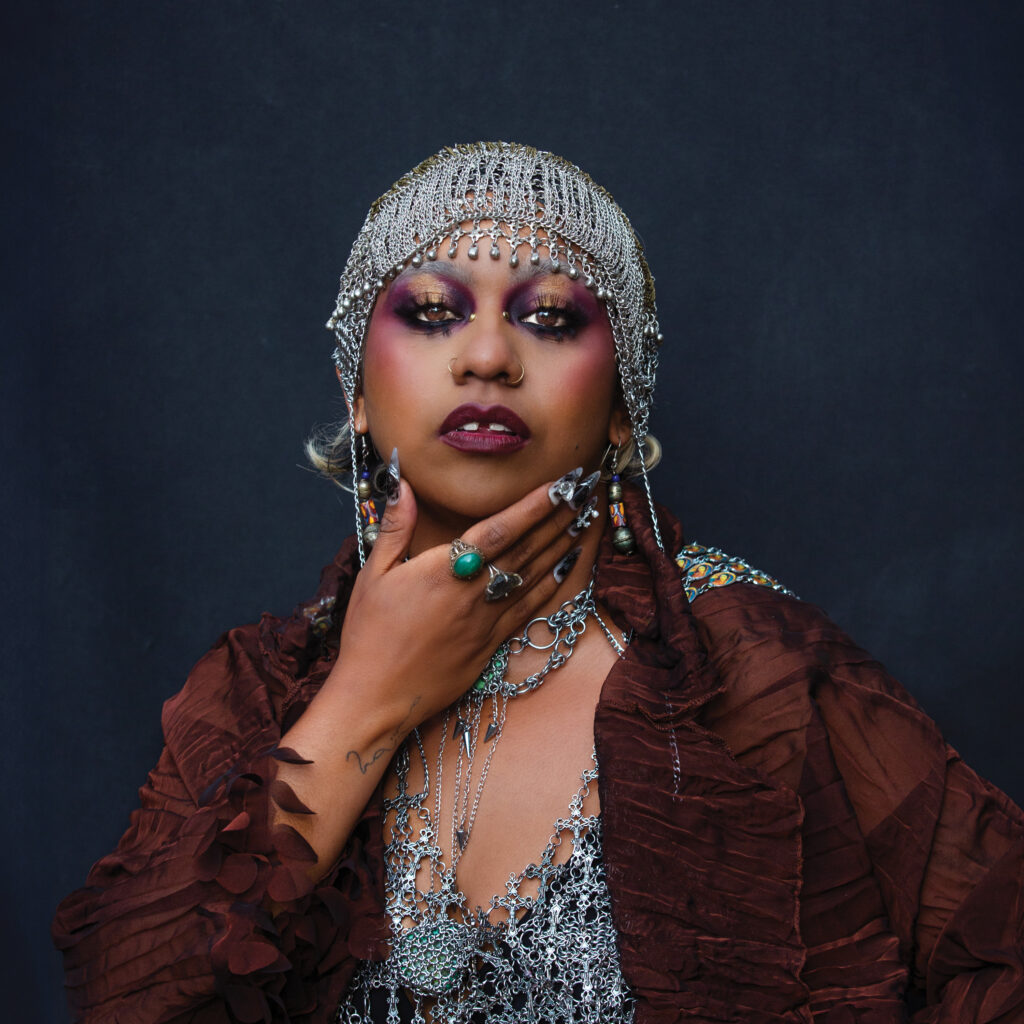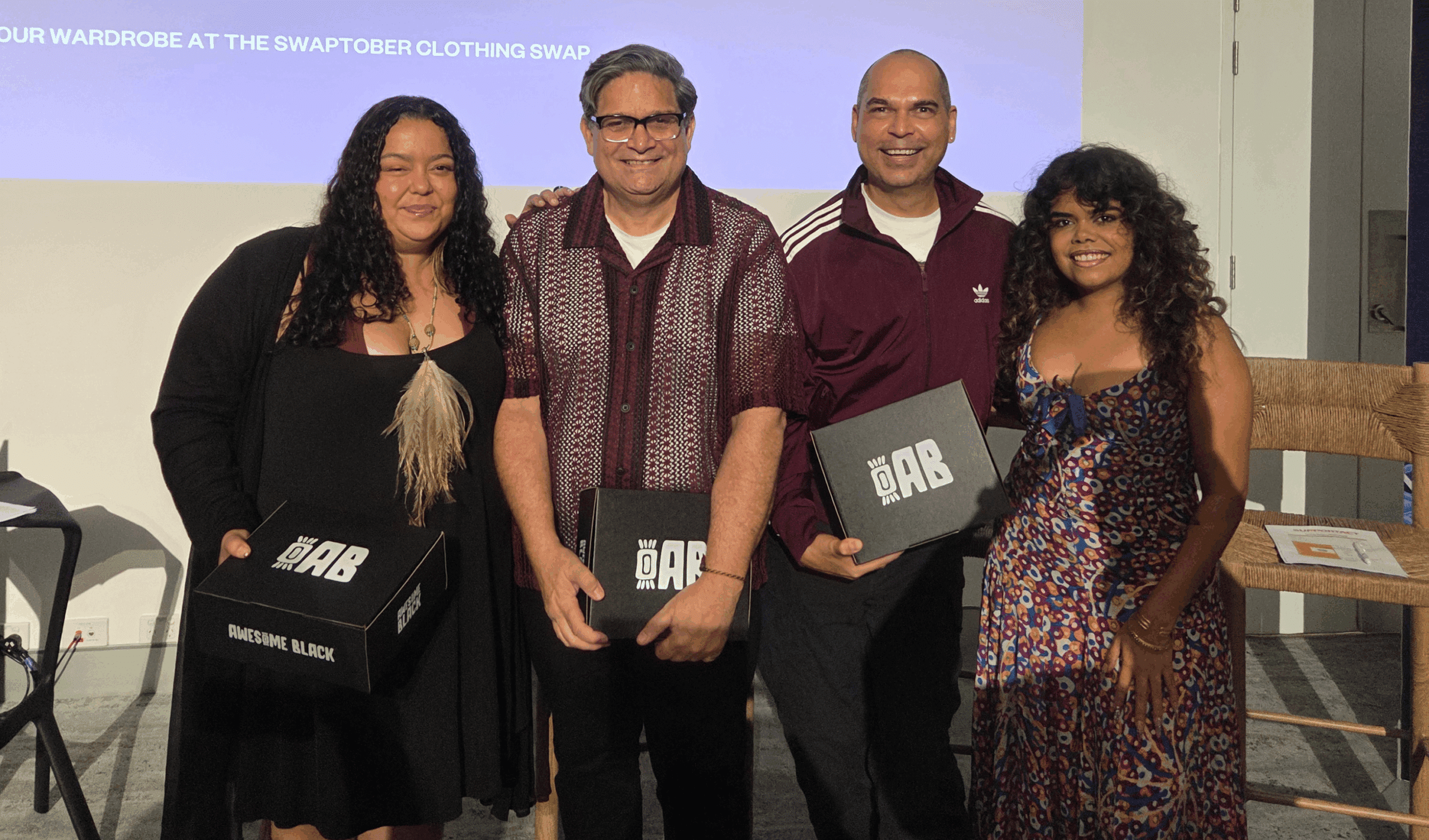“When I first started taking music seriously I was around 13/14 years old. I started off playing everywhere I could, busking, open mics, entering talent competitions, and registering for youth music programs. I always knew from a young age that music was my safe space and I have always felt like I am a conduit on this planet, between me and whatever unseen things that speak to my soul.“
Throughout my years up until probably 2017 there were no discussions around mental health, protecting your energy, boundaries, or anything of that sort. As a Warnindilyakwa woman, I am always reminded how colonialism is embedded in our society, in these spaces and industries. My voice, as a Blak woman, was never thought of to begin with, so the systems and policies that are in place are outdated and stale. I’m so very grateful we have Support Act, they’ve been a huge help to me these past couple of years.
From that tender age to now, I’ve been subjected to racism, homophobia, misogyny, harassment, sexual abuse, and bullying. The majority of that is still happening. I’ve had to learn how to create my safe space within the work I do. Whether that’s putting in place specific requests in my rider, cultural contracts, having mob around me, a social media person, or traveling with a tour manager whenever I do shows.
I was always told “This is just how the industry is” or “It’s not a big deal, you’ll get over it” – the words that I know many of my creatives, not just in the music industry, but across all the industries are all too familiar with. As artists, we are vulnerable in all aspects of what we do. We are storytellers and that is a sacred practice of self, but I believe there is power in vulnerability.

“Mental health is something that affects us all, it’s this imposter that keeps coming back for more. I’ve found rituals and practices to put in place before my gigs, before I leave home, as soon as I get into my hotel room, and as soon I meet people. I feel like post-COVID my social anxiety has peaked and I find touring difficult and overstimulating sometimes.“
For the past 4 and a half years, I’ve been living in Lutruwita – I’ve learned new things about myself and unlearned some things too. After I lost everything in the housefire, I toured extensively after that and it had a huge impact on my health, physically, spiritually, and mentally.
From what I’ve learned after everything I’ve been through in my career – honestly, If I were to say something to the younger Em starting out, I’d say it’s okay to say “NO, I can’t do this” – It’s okay to take a step back and sit with everything. It’s okay to be a human being, take your time, and FEEL. Find your safe people and create your own safe space. Who you surround yourself with is crucial and don’t be shame to reach out to your community to lean on.
To any creatives reading this, I just want to remind you that your art and what you are doing is important and someone out there listening to it right now probably isn’t in a good place; you’re saving them with your music.
“Please keep writing, dreaming, and performing. The people NEED you.”
I always think, “Oh what a beautiful way to live my life – knowing that the very thing that I need to help me, in turn, is helping provide a safe space for others to feel.”


